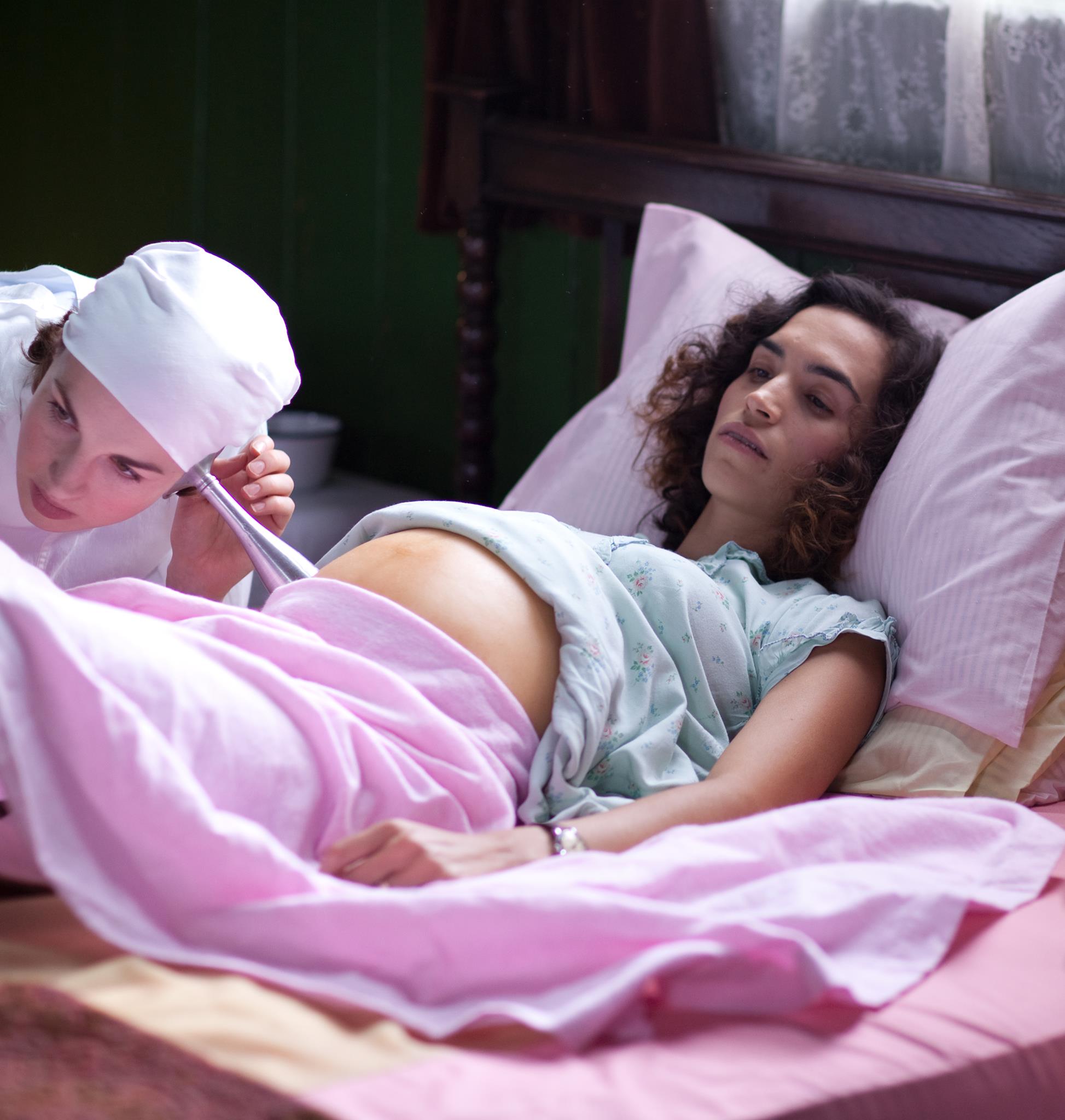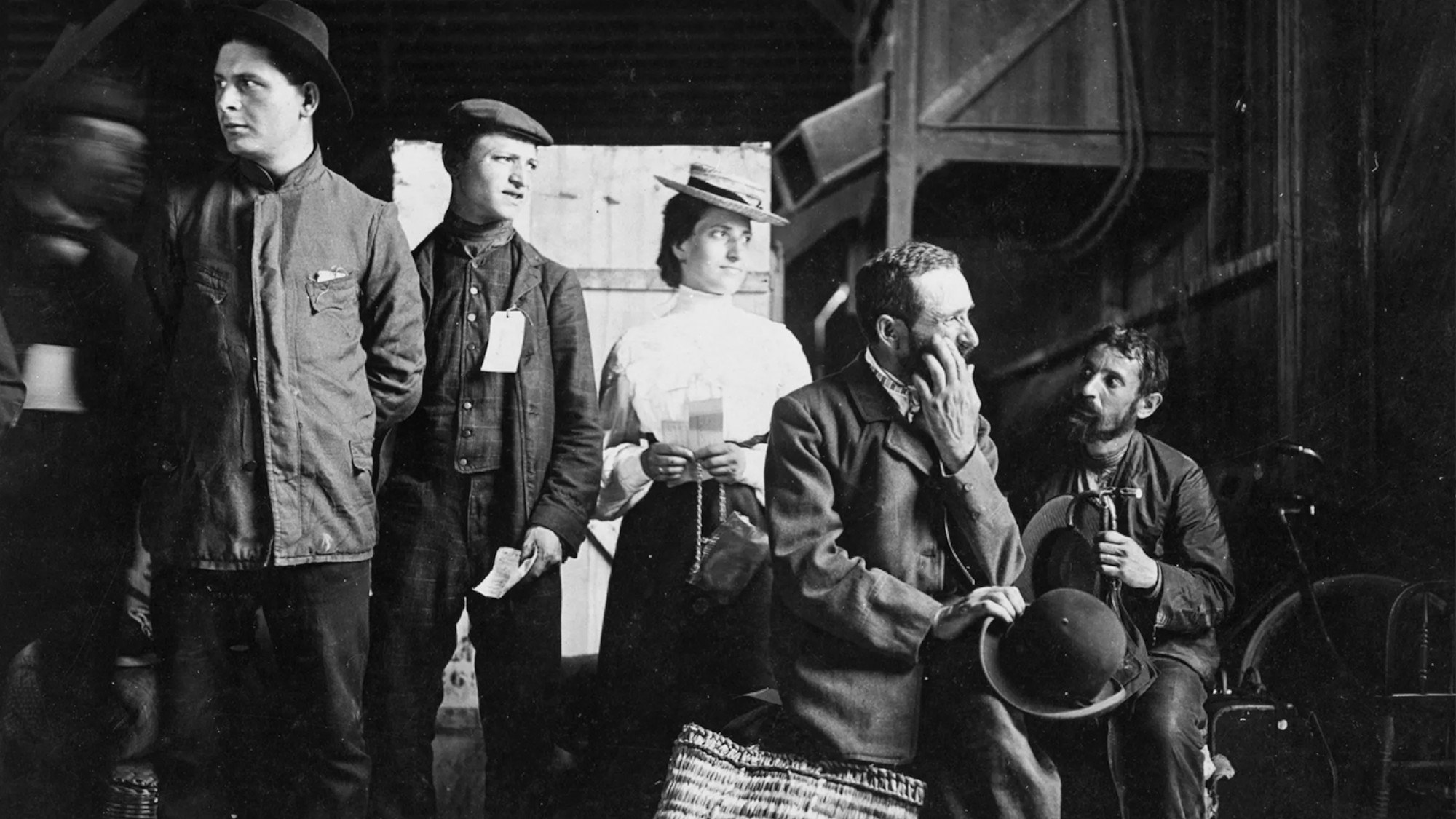Childbirth is finally getting the cultural treatment it deserves
Move over, war dramas. There's a new epic in town.


For much of the 20th century, childbirth existed in the realm of the unseen. Once the act of having a baby became medicalized, it was something that happened behind closed doors. Fathers were not allowed in the delivery room, and mothers were given a mixture of morphine and scopolamine that would induced "twilight sleep." They wouldn't feel pain. They also wouldn't remember much.
Among the many things second wave feminists fought for was the end of this marginalization of pregnancy and childbirth. Women wanted to be conscious during birth, to have a say in what was happening to their babies and bodies, and to talk about it afterwards. And so was born the custom of publicly and proudly sharing birth stories.
It turns out these bloody and dangerous, tender and life-affirming tales have all the elements of a great epic. They make worthy rivals to male-dominated war or sports story any day.
Subscribe to The Week
Escape your echo chamber. Get the facts behind the news, plus analysis from multiple perspectives.

Sign up for The Week's Free Newsletters
From our morning news briefing to a weekly Good News Newsletter, get the best of The Week delivered directly to your inbox.
From our morning news briefing to a weekly Good News Newsletter, get the best of The Week delivered directly to your inbox.
It took decades, but now it seems that popular culture has caught on. There is a rising presence of birth stories on prestige TV, from the popular BBC series Call the Midwife, for which labor is the crux of the drama on a regular basis, to recent intense birth scenes on Starz's Outlander and Cinemax's The Knick.
We've also seen a rise of the birth story in prose. After complaints about the dearth of such scenes in literary writing, the drama of labor is slowly becoming a literary staple. Ariel Levy won a National Magazine Award last year for her powerful New Yorker essay "Thanksgiving in Mongolia" in which she describes giving birth to a five-month-old baby who didn't survive. There was also a terrific essay on Longreads by Meaghan O' Connell about her C-section, one of the many of birth stories being published online these days.
Fiction writers are taking up childbirth too. One of the most moving sections of Alice McDermott's 2013 novel Someone is the prolonged labor scene, a moment of terror and transcendence. In Elisa Albert's recently published After Birth, the narrator describes her C-section, or "effective disembodiment," in great detail. The psychological wound left by this experience is one the character continues to scratch and let bleed throughout the rest of the book.
It's true that childbirth scenes have been a staple of romantic comedies for awhile now. But there they are generally limited to the role of a chaotic but ultimately happy ending, a tidy resolution to whatever personal hijinks occupied the screen for the two hours preceding it. The depths of the experience are hardly acknowledged, let alone reached.
Now childbirth is the story, and it's been elevated to an epic. We get a hero on a journey who meets resistance. She encounters pain. She has moments of exuberance. Sometimes there is tragedy. In the end she returns home, inevitably transformed by the experience.
This elevation of labor is good for women for two reasons. For one, there are more of our stories on the page and screen, fragments of lives that we recognize as our own. Though perhaps even more importantly is the way our experiences, our stories, are being come to see as universal; they've begun to transcend the confines of gender.
The fact is, nobody would be surprised to hear that a woman was moved by a great war film like Saving Private Ryan or Apocalypse Now, even though combat was largely a male experience for much of history. But a guy who is touched by a particularly gnarly or emotional birth scene? For a long time, this was hardly something that could be expected, let alone assumed.
The arrival of the dramatic birth scene won't level this imbalance right away — the presumed audience for them is generally still women. But the declaration of their epic grandeur has been made, and it's only a matter of time before the guys catch on.
Sign up for Today's Best Articles in your inbox
A free daily email with the biggest news stories of the day – and the best features from TheWeek.com
Elissa Strauss writes about the intersection of gender and culture for TheWeek.com. She also writes regularly for Elle.com and the Jewish Daily Forward, where she is a weekly columnist.
-
 Book reviews: 'Melting Point: Family, Memory, and the Search for a Promised Land' and 'No More Tears: The Dark Secrets of Johnson & Johnson'
Book reviews: 'Melting Point: Family, Memory, and the Search for a Promised Land' and 'No More Tears: The Dark Secrets of Johnson & Johnson'Feature A promised land in Texas and the takedown of a healthcare giant
-
 Silicon Valley's military ambitions
Silicon Valley's military ambitionsFeature Tech companies are replacing military contractors with AI, drones and battlefield systems
-
 Deportations: Miller's threat to the courts
Deportations: Miller's threat to the courtsFeature The Trump administration is considering suspending habeas corpus to speed up deportations without due process